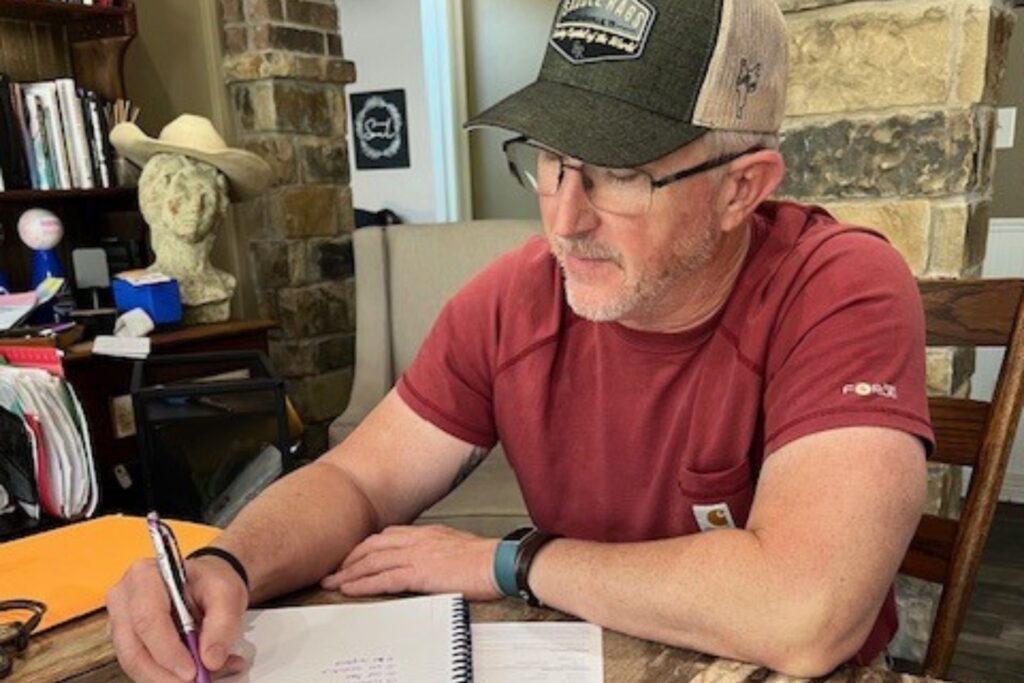Small Daily Decisions That Build a Big, Beautiful Life
In places like Stephenville and Eastland, we don’t always talk about “intentional living.” Life is already full—work to do, kids to raise, people to care for. But when Dr. LaDuque started changing his own daily patterns, he realized something important: we’re always living with intention—it’s just not always the intention we want.
Are you choosing your days, or letting your days choose you?
What Is Intentional Living?
Intentional living means living on purpose. It means aligning your time, energy, and actions with your core values—not just what’s loud or urgent.
It’s waking up and choosing to care for your body, family, and faith before checking email or scrolling headlines. It’s asking, “Who do I want to be?” before “What do I have to do?”

Why It Matters—Here and Now
In rural Texas, we’re not short on grit. But that grit can become survival mode if we’re not careful. Over time, good people burn out. Marriages fray. Kids feel like afterthoughts. And men and women who once had clear purpose begin drifting through weeks with no anchor.
Intentional living isn’t about overhauling everything—it’s about taking ownership of what matters most.
Dr. LaDuque’s 5 Practices for Intentional Living
- 1. Begin Your Day Before It Begins You
Start with stillness—scripture, gratitude, or quiet breathwork. Let your identity lead your calendar. - 2. Choose Family Time Daily
Whether it’s breakfast, dinner, or a 10-minute walk, be present. Make one daily moment sacred. - 3. Create Boundaries Around Your Phone
Don’t let distraction hijack connection. Use tech, don’t let it use you. - 4. Know Your “Why”
Write out the 3 core values that guide your work, your faith, and your relationships. Review them weekly. - 5. Say No to Say Yes
Every “yes” to someone else’s urgency is a “no” to your own priorities. Protect your peace.
The Neuroscience of Presence
Living with intention isn’t just spiritual—it’s deeply neurological. When we practice mindfulness, gratitude, and breathwork, we reduce cortisol and train the brain to regulate emotion more effectively (Tang et al., 2015). That creates the internal space for better choices—even in high-stress moments.
It also helps restore the brain’s ability to focus, which declines significantly when our attention is fragmented by technology and multitasking.
“What you practice, you become. If you practice reaction, you’ll become reactive. If you practice peace, you’ll become peaceful.” — Dr. LaDuque
What This Looks Like in Real Life
One patient shared that after creating a 15-minute morning window for journaling and stillness, she noticed she stopped yelling at her kids in the car. Another dad reported that deleting a single social media app helped him reconnect with his wife in the evenings—“We finally talked again, like before we were tired all the time.”
This isn’t about perfection. It’s about direction. Dr. LaDuque teaches patients to aim for progress, not performance.
Citations
- Tang, Yi-Yuan, et al. “The neuroscience of mindfulness meditation.” Nature Reviews Neuroscience, vol. 16, no. 4, 2015, pp. 213–225.
- Brown, Kirk Warren, and Richard M. Ryan. “The benefits of being present: Mindfulness and its role in psychological well-being.” Journal of Personality and Social Psychology, vol. 84, no. 4, 2003, pp. 822–848.
- Lyubomirsky, Sonja, et al. “Gratitude and well-being: The benefits of appreciation.” Review of General Psychology, vol. 9, no. 2, 2005, pp. 92–110.
Final Word from Dr. LaDuque
“We live in a distracted world. But we don’t have to be distracted people. Every day, you have a choice. Choose to show up—fully, intentionally, and anchored in who you were made to be.”
Explore More from the Wellness Series
Author: Dr. LaDuque, Dental Excellence
Location: Stephenville & Eastland, TX